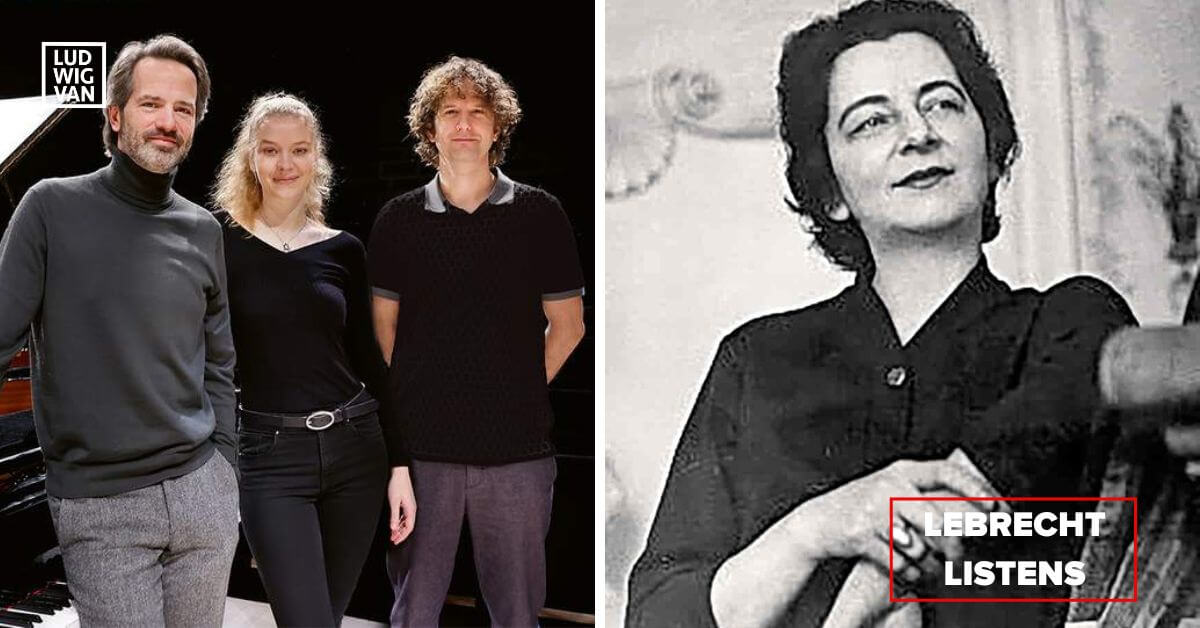
Grazyna Bacewicz: Piano Concerto / Concerto for 2 Pianos / Overture / Music for Strings, Trumpets & Percussion (Ondine)
★★★★☆
Is there a more elusive composer in the whole of the 20th century than Grazyna Bacewicz (1909-1969)?
Bacewicz is usually designated a Polish composer, but her Lithuanian father left the family after his state won independence in 1918. Her brother, Vytautus Bacevičius, was a composer in New York. Grazyna, landing a well-paid job as concertmaster of the national radio orchestra, shuttled between Warsaw and Lodz. She is Polish, then, by circumstance; also, by marriage and child. But, her sound does not fit somehow in the Polish tapestry of Szymanowski, Lutoslawski, Panufnik and Penderecki. She is an outsider, and not by reasons of gender. Bacewicz holds herself apart.
Under the horrors of Nazi occupation, she carried on composing when there was no chance of getting performed. A ridiculously playful 1943 orchestra was premiered in September 1945. What on earth was in her mind — hope or mockery? Blindfold, you might mistake this piece for a frippery by Arthur Bliss or one of Les Six. The real Grazyna Bacewicz will not stand up.
A first piano concerto of 1949, written under Stalinist rules of ‘socialist realism’, flickers between fragments of Bartok and Stravinsky, taking root in neither. Bacewicz keeps her intentions wilfully obscure. A concerto for 2 pianos in the slightly easier climate of 1966 betrays some affinity with contemporary modernism, but just as you think she’s waving tone clusters and a serial row, she retreats right back into tonal form and harmonies.
There are immense energies in Bacewicz, but I’m not sure that any interpreter on record has yet nailed her character. Peter Jablonski is the dazzling pianist on this release. Nicholas Collon conducts with Finnish Radio Orchestra with too many dynamic extremes. I keep wanting to like Bacewicz more, but I find it hard to understand that a composer who lived in Poland through its worst era withholds the entirety of her experience from posterity. How is that possible?
To read more from Norman Lebrecht, subscribe to Slippedisc.com.
#LUDWIGVAN
Get the daily arts news straight to your inbox.
Sign up for the Ludwig van Daily — classical music and opera in five minutes or less HERE.
- LEBRECHT LISTENS | Two Releases Of Elgar Symphonies To Compare - April 19, 2024
- LEBRECHT LISTENS | Jordan Bak’s Cantabile For Viola Reveals The Neglected Instrument’s Beauty - April 12, 2024
- LEBRECHT LISTENS |David Robert Coleman & The Berlin Radio Symphony Orchestra Reveal The Charms Of Walter Kaufmann - April 5, 2024



